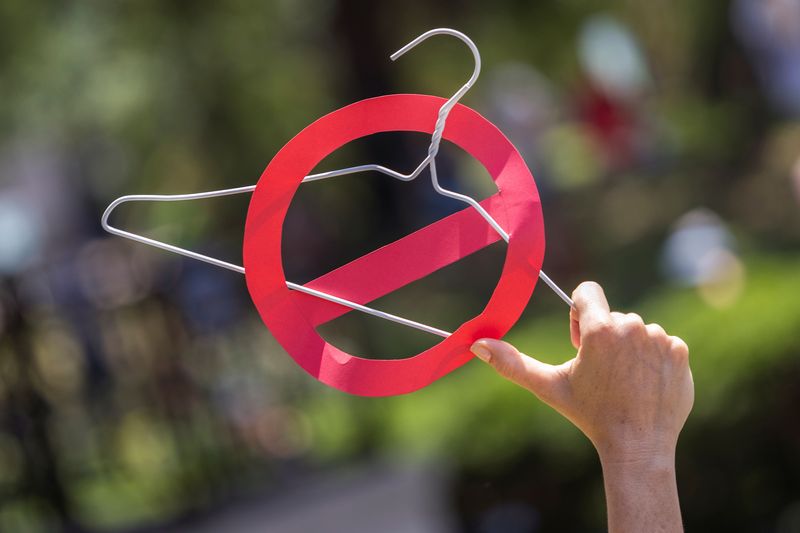By Sharon Bernstein
(Reuters) - Thirteen states have begun enforcing abortion bans since the U.S. Supreme Court in June overturned Roe v. Wade, a swift and dramatic change after nearly 50 years of federal abortion protections.
Some restrictive abortion laws are on hold in other states as courts consider legal challenges.
Here is a look at the current U.S. abortion landscape:
ACTIVE BANS
Alabama, Arkansas, Arizona, Idaho, Kentucky, Louisiana, Mississippi, Missouri, Oklahoma, South Dakota, Tennessee, Texas and West Virginia have total or near-total abortion bans, according to Guttmacher Institute, an abortion rights research group.
In Wisconsin, providers also have stopped offering abortions amid legal wrangling over an 1849 state ban that took effect after the Supreme Court overturned the 1973 Roe v. Wade case that legalized the procedure nationwide.
Georgia has banned most abortions after about six weeks of pregnancy.
LEGAL CHALLENGES
Abortion bans and restrictions have been paused in states, including Indiana, Michigan, North Dakota, Ohio, South Carolina, Utah and Wyoming as legal fights play out.
In Iowa, a 2018 ban on abortions after about six weeks of pregnancy was halted by courts in 2019. Republican Governor Kim Reynolds in August asked a state court to reconsider.
The court battles have added to the uncertainty for abortion access in those states. Some providers have limited services, fearful that procedures spanning more than a day could be interrupted by a court decision allowing a ban to be enforced.
In Arizona, for instance, a judge ruled on Sept. 23 that the state could enforce a pre-Roe ban based on 1864 law that prohibits nearly all abortions. But that conflicts with a more recent ban enacted by the state legislature that would outlaw abortions after 15 weeks.
The state's governor and attorney general are at odds over which should take precedent, and the judge in the case of the older ban has said it would be improper to try to reconcile them in the context of that case. Planned Parenthood Arizona has begun the process of appealing the ruling.
In Utah, a court blocked enforcement of that state's "trigger law," which was designed to take effect once the Supreme Court overturned Roe. With the state's near-total ban now on hold, abortions are still available there.
POLICY DEBATES
Opposition to abortion has been part of the Republican Party's platform for years, and most party officials had vowed to restrict or ban abortion in their states if Roe fell.
But in the wake of Roe, Republican state lawmakers have faced pushback within their own ranks to some of the most restrictive anti-abortion proposals.
In West Virginia, the Republican-dominated legislature was stuck for weeks arguing over details of a ban before deciding in September to allow limited exceptions for rape, incest and the health of the mother, and exclude prison sentences for doctors who perform abortions.
In Indiana, lawmakers also argued over how far to go, aware that some constituents wanted a total ban on abortions without exception and others felt that was too extreme. In the end, the state became the first to enact new restrictions after the Supreme Court decision, but the ban was put on hold by a court on Sept. 22.
In South Carolina, efforts to enact a near-complete ban on abortions stalled in September, amid disagreements over how strict it should be. A prior law, banning abortions at about six weeks, was halted by the state Supreme Court in August.
VOTERS WEIGH IN
Public opinion polls show that a majority of Americans say abortion should be legal in all or most cases.
A number of states have ballot measures that will give voters a chance to weigh in on the issue in the Nov. 8 midterm elections.

In California, Vermont and Michigan, voters will consider adding abortion protections to their state constitutions. In Kentucky, a ballot initiative would establish that the state constitution does not protect or recognize a right to an abortion.
Kansas voters rejected an August ballot initiative that would have eliminated that state's constitutional protection for abortion.